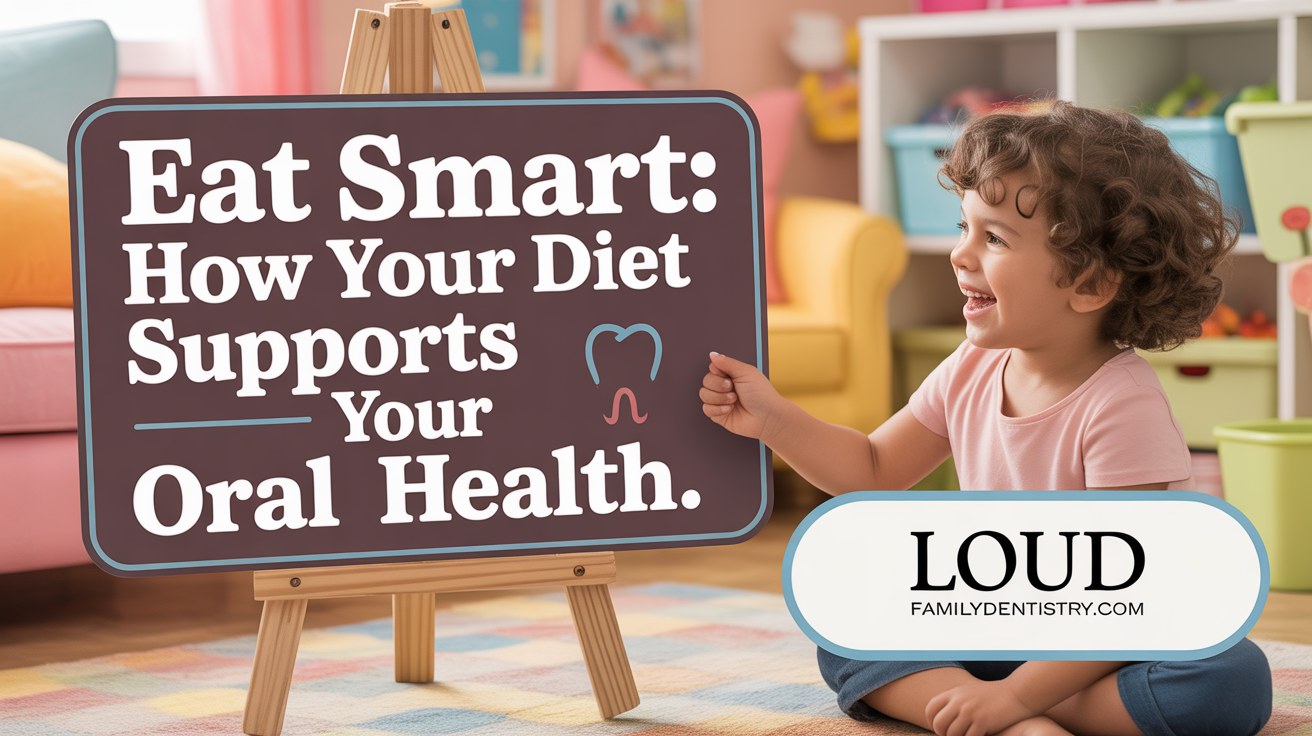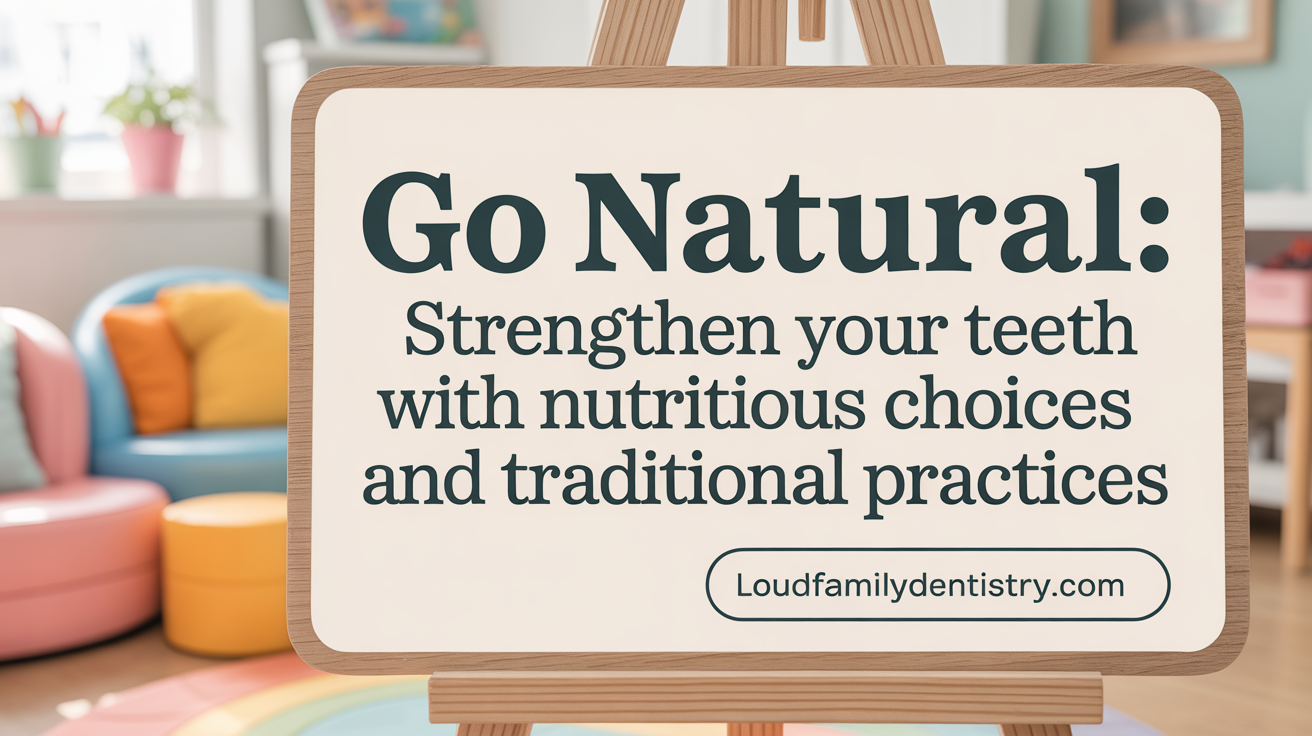Why Diet Matters for Your Teeth
Strong, healthy teeth depend not only on good oral hygiene but also on the foods we eat. The nutrients in our diet play a pivotal role in protecting enamel, supporting gum health, and preventing dental diseases. This article explores the best foods and dietary habits that promote dental strength and offer natural protection against common oral health issues.
Key Nutrients for Strong Teeth and Gums

Which nutrients are beneficial for dental health?
Maintaining healthy teeth and gums relies heavily on various vital nutrients. Calcium plays a crucial role in strengthening enamel, the hard outer layer of teeth, and in supporting the overall structure of teeth and bones. Phosphorus complements calcium by aiding in rebuilding and protecting the mineral structure of teeth.
Vitamin D is essential because it helps the body absorb calcium more efficiently, promoting the mineralization and strength of teeth and jawbones. Adequate vitamin D intake reduces the likelihood of brittle teeth and enamel decay.
Vitamin C is vital for oral health as it maintains the integrity of gums and soft tissues. It supports collagen production, which is necessary for the healing and regeneration of gum tissue, and helps prevent inflammation and gum disease.
Vitamin A contributes to saliva production and the health of mucous membranes in the mouth. This aids in oral healing and provides a defense mechanism against bacteria.
Additionally, fluoride, commonly found in drinking water and some foods, reinforces enamel making it more resistant to acid attacks from bacteria, thereby reducing the risk of cavities.
Proper intake of these nutrients through diet helps maintain durable enamel, healthy gums, and overall oral hygiene.
Sources of these nutrients and their benefits for enamel and gum strength
Below is a table summarizing food sources rich in essential nutrients and their oral health benefits:
| Nutrient | Food Sources | Oral Health Benefits |
|---|---|---|
| Calcium | Dairy products (milk, cheese, yogurt), leafy greens, almonds | Strengthens enamel, supports bone health, prevents decay |
| Phosphorus | Meat, fish, eggs, dairy, nuts, seeds | Works with calcium to rebuild and mineralize teeth |
| Vitamin D | Fish (salmon, mackerel), fortified foods, sunlight exposure | Enhances calcium absorption, promotes mineralization |
| Vitamin C | Citrus fruits, strawberries, bell peppers, kiwis | Maintains gum integrity, prevents inflammation, supports collagen synthesis |
| Vitamin A | Carrots, sweet potatoes, leafy greens | Promotes saliva production, enhances mucosal health |
| Fluoride | Fluoridated water, seafood, tea | Reinforces enamel, provides protection against decay |
Eating a balanced diet rich in these nutrients from diverse sources can significantly improve oral health. Incorporating foods like dairy, leafy greens, fruits, and fish not only supports tooth durability but also promotes healthy gums. Additionally, limiting sugary and highly processed foods helps prevent enamel erosion and cavities.
By understanding and consuming these nutrients regularly, individuals can strengthen their teeth and gums, reduce the risk of dental diseases, and maintain a radiant smile.
End of section
Top Foods That Build and Protect Your Teeth

What foods promote strong and healthy teeth?
Eating the right foods plays a vital role in maintaining robust teeth and healthy gums. Calcium-rich foods like dairy products—including yogurt, milk, and cheese—are essential because they help strengthen tooth enamel and rebuild bones.
Leafy greens such as spinach, kale, and collard greens are packed with calcium, vitamin C, and folic acid, supporting both enamel strength and gum health.
Nuts, especially almonds, provide calcium and phosphorus, which are crucial minerals for dental tissue strength. Tofu, a good source of calcium and protein, also supports enamel rebuilding.
Crunchy vegetables like carrots and celery act as natural toothbrushes. Their fibrous texture stimulates saliva flow, which naturally cleans teeth and neutralizes harmful acids.
Salmon and other fatty fish supply vitamin D and omega-3 fatty acids. These nutrients are important because they enhance calcium absorption and help reduce inflammation in the gums.
Fruits such as strawberries contain malic acid, a natural teeth whitener, while apples and other fibrous fruits stimulate saliva production and help remove plaque.
In addition to specific foods, staying well-hydrated with water is crucial. Water helps dilute and wash away acids and bacteria, maintaining a balanced pH in the mouth.
Together, these foods and healthy habits foster oral health by strengthening enamel, reducing inflammation, and cleaning the mouth naturally.
| Food Category | Examples | Benefits |
|---|---|---|
| Calcium-rich foods | Dairy (yogurt, milk, cheese), leafy greens (spinach, kale), almonds, tofu | Strengthen and rebuild enamel and bones |
| Fatty fish | Salmon, mackerel | Provide vitamin D and omega-3s for gum health |
| Fruits & vegetables | Strawberries, apples, carrots, celery | Promote tooth whitening, stimulate saliva, remove plaque |
| Hydration | Water | Maintains pH, washes bacteria, reduces acids |
How Dietary Choices and Practices Support Oral Health
 Maintaining good oral health largely depends on what we eat and how we manage our eating habits. A balanced diet containing plenty of fresh vegetables, fruits, whole grains, and dairy products provides essential minerals such as calcium, vitamin D, and folic acid that strengthen teeth and gums.
Maintaining good oral health largely depends on what we eat and how we manage our eating habits. A balanced diet containing plenty of fresh vegetables, fruits, whole grains, and dairy products provides essential minerals such as calcium, vitamin D, and folic acid that strengthen teeth and gums.
Limiting the intake of free sugars — especially added sugars and sucrose — is crucial. Consuming less than 20 grams of sugar daily and avoiding sugary snacks and drinks between meals can dramatically lower the risk of developing cavities. Whole fruits and dairy are naturally low in sugar and contain beneficial sugars that support oral health.
Timing also plays a role. Eating acidic foods or sugary treats during mealtimes minimizes their harmful effects on enamel. Drinking water after meals helps neutralize acids and wash away food particles. Incorporating foods high in calcium — like cheese, yogurt, fortified soy drinks, and leafy greens — also replenishes minerals lost from tooth enamel.
Encouraging saliva production is another important strategy. Crunchy foods like carrots, celery, and apples stimulate saliva flow, which neutralizes acids and naturally cleans teeth. Staying well-hydrated with water and milk ensures consistent saliva production, key for protecting against decay.
The use of sugar-free gums containing xylitol can further stimulate saliva and inhibit bacteria that cause decay. Moreover, fluoride in drinking water and some foods reinforces tooth enamel, making it more resistant to acids.
Altogether, smart food choices and mindful eating schedules not only promote healthier teeth and gums but also support the overall integrity of oral tissues. Public health measures, including fluoride use and education about sugar intake, compliment individual efforts in preventing dental problems.
In essence, practicing good dietary habits, timing food intake carefully, and using supportive products like sugar-free gum and fluoridated water play vital roles in maintaining a smile that stays healthy and vibrant.
Natural Ways to Strengthen Teeth and Maintain Oral Health

How can I naturally strengthen my teeth?
Strengthening teeth without relying on chemicals involves nourishing your body with essential nutrients and adopting gentle oral care practices. A diet rich in calcium, vitamin C, vitamin A, and phosphorus fosters enamel repair and gum health. Foods like leafy greens, dairy products, almonds, and fatty fish provide these vital nutrients.
Oil pulling, an ancient practice, can help reduce plaque buildup and support overall oral health. Using high-quality oils such as coconut or sesame oil, you swish in the mouth for 10-20 minutes, being cautious if you have dental amalgam fillings.
For a natural cleaning method, dry brushing with sesame seeds or baking soda can gently scrub away stains and loosen plaque while being gentle on enamel. Avoid harsh abrasive toothpaste or whitening agents that may erode tooth surface.
Supporting your dental health also involves managing stress, which can affect immune response and inflammation. Supplementing with magnesium helps relax jaw muscles, reduce teeth grinding, and promote healthy gums.
Equally important is avoiding sugary or acidic foods and drinks, which contribute to enamel erosion and cavities. Instead, focus on eating fruits and vegetables that stimulate saliva, act as natural toothbrushes, and supply crucial nutrients.
Good oral hygiene practices remain essential. Brushing thoroughly twice a day, flossing daily, and cleaning your tongue help remove bacteria and prevent plaque formation. Regular dental visits ensure professional cleanings and early detection of issues.
By integrating these natural methods—balanced nutrition, oil pulling, careful brushing, stress management, and avoiding harmful foods—you can support the strength of your teeth and maintain a healthy, vibrant smile.
Foods and Habits That Can Harm Teeth and How to Avoid Them

What foods and habits can harm teeth?
Many common foods and habits pose risks to dental health. Foods high in refined sugars and starches, such as candies, sweets, chips, and baked goods, feed harmful bacteria in the mouth. These bacteria produce acids that attack and weaken tooth enamel, leading to cavities.
Sticky foods like dried fruits, caramel, and chewy candies tend to cling to teeth. If not thoroughly cleaned away, they increase the risk of plaque buildup and decay.
Acidic foods and drinks—including citrus fruits, fruit juices, and carbonated sodas—erode enamel, making teeth more vulnerable to decay and sensitivity.
Habits such as chewing ice, using teeth to open packages, or frequently snacking on sugary or starchy foods can cause physical damage or decrease saliva flow. Reduced saliva impairs the mouth's natural ability to neutralize acids and wash away food particles.
Additionally, alcohol and sugary beverages tend to dry out the mouth. Dry mouth reduces saliva production, diminishing its protective functions and increasing the likelihood of cavities and gum problems.
Understanding these factors helps in making mindful choices and adopting habits that preserve oral health.
The Role of Superfoods and Functional Foods in Oral Health
How do plant-derived compounds like polyphenols and allicin benefit oral health?
Plant-derived compounds such as polyphenols and allicin play a significant role in maintaining oral health. Polyphenols, found in green and black teas as well as cranberries, act as antioxidants that reduce inflammation and inhibit bacteria that cause plaque and cavities. For example, catechins in green tea help prevent bacterial adhesion and reduce inflammation, lowering the risk of gum disease.
Allicin, a compound present in garlic, has antimicrobial properties that help control the overgrowth of harmful bacteria in the mouth. Consuming garlic regularly can support the fight against bacteria responsible for tooth decay and periodontal infections, promoting overall oral health.
What are the anti-plaque and antioxidant properties of teas, cranberries, and garlic?
Green and black teas contain polyphenols that disrupt plaque formation and combat bacteria that cause cavities and gum disease. Additionally, these teas contain fluoride, which helps strengthen enamel and protect against decay. Green tea’s catechins further reduce inflammation and bacterial growth.
Cranberries contain unique polyphenols, like proanthocyanidins, that prevent bacteria from adhering to teeth and forming plaque, thereby reducing the risk of cavities and gum disease. Their antioxidant properties also combat oxidative stress in oral tissues.
Garlic's allicin is a potent antimicrobial agent that reduces bacterial populations responsible for oral infections. Its regular consumption can help keep bacterial growth in check, promoting healthier gums and teeth.
What is emerging research on bioactive foods and their dental benefits?
Recent studies focus on the potential of bioactive foods—foods containing beneficial plant compounds—to improve dental health. Research at institutions like UIC explores how plant-derived substances can inhibit the formation of biofilms and reduce plaque adhesion. Such functional foods could be developed into natural oral health products.
Scientists are investigating how foods rich in antioxidants, anti-inflammatory agents, and antimicrobials can support oral tissue regeneration, enhance enamel strength, and prevent disease. This emerging research points toward developing dietary strategies or supplements that harness the benefits of superfoods for oral health.
| Food Source | Bioactive Compound | Benefits | Additional Notes |
|---|---|---|---|
| Green and Black Tea | Polyphenols, Fluoride | Reduce plaque, strengthen enamel, decrease inflammation | Contains catechins in green tea for bacterial control |
| Cranberries | Proanthocyanidins | Prevent bacterial adhesion, inhibit plaque formation | Rich in antioxidants, support gum health |
| Garlic | Allicin | Fight bacteria, reduce infections | Potent antimicrobial properties |
| Emerging Functional Foods | Various plant compounds | Support tissue repair, strengthen enamel, inhibit biofilms | Focus of cutting-edge research |
Maintaining a diet rich in these functional foods, along with good oral hygiene, can significantly contribute to healthier teeth and gums.
Eating for a Healthy Smile
Maintaining strong and healthy teeth goes beyond brushing and flossing—it starts on our plates. Incorporating a variety of nutrient-dense foods rich in calcium, vitamins, and minerals alongside proper hydration and mindful dietary habits supports enamel strength and gum health. Avoiding sugary, sticky, and acidic foods while embracing nutrient-packed fruits, vegetables, nuts, dairy, and fish can naturally protect teeth from decay and inflammation. By understanding how diet impacts dental health and adopting protective eating practices, you can enjoy a vibrant smile for years to come.
References
- Foods for Strong Teeth | Penn Dental Medicine
- The Best Foods For A Healthy Smile and Whole Body
- 10 foods and drinks with surprising oral health benefits
- Healthy Foods That Help Your Teeth Stay Strong
- Fuel Your Smile: Foods that Strengthen Teeth and Gums
- Healthy Foods for Healthy Teeth - Denton Dental Group
- Healthy Foods List: Seven Best Foods for Your Teeth - Colgate
- The Top 7 Best Foods to Strengthen Your Teeth - 404 Dental Care
- Foods to Eat for Healthy Teeth and Gums - Esteem Dental
